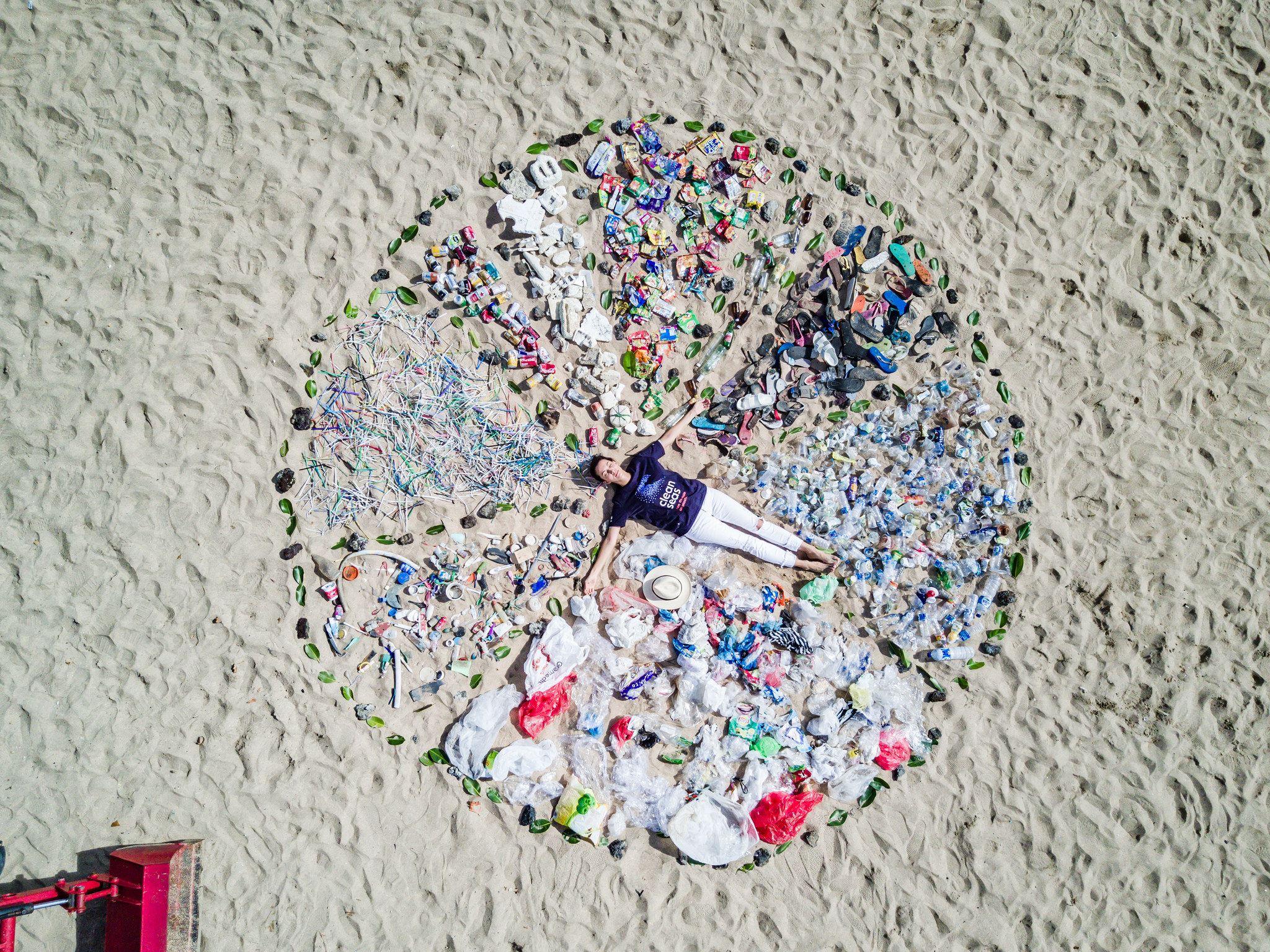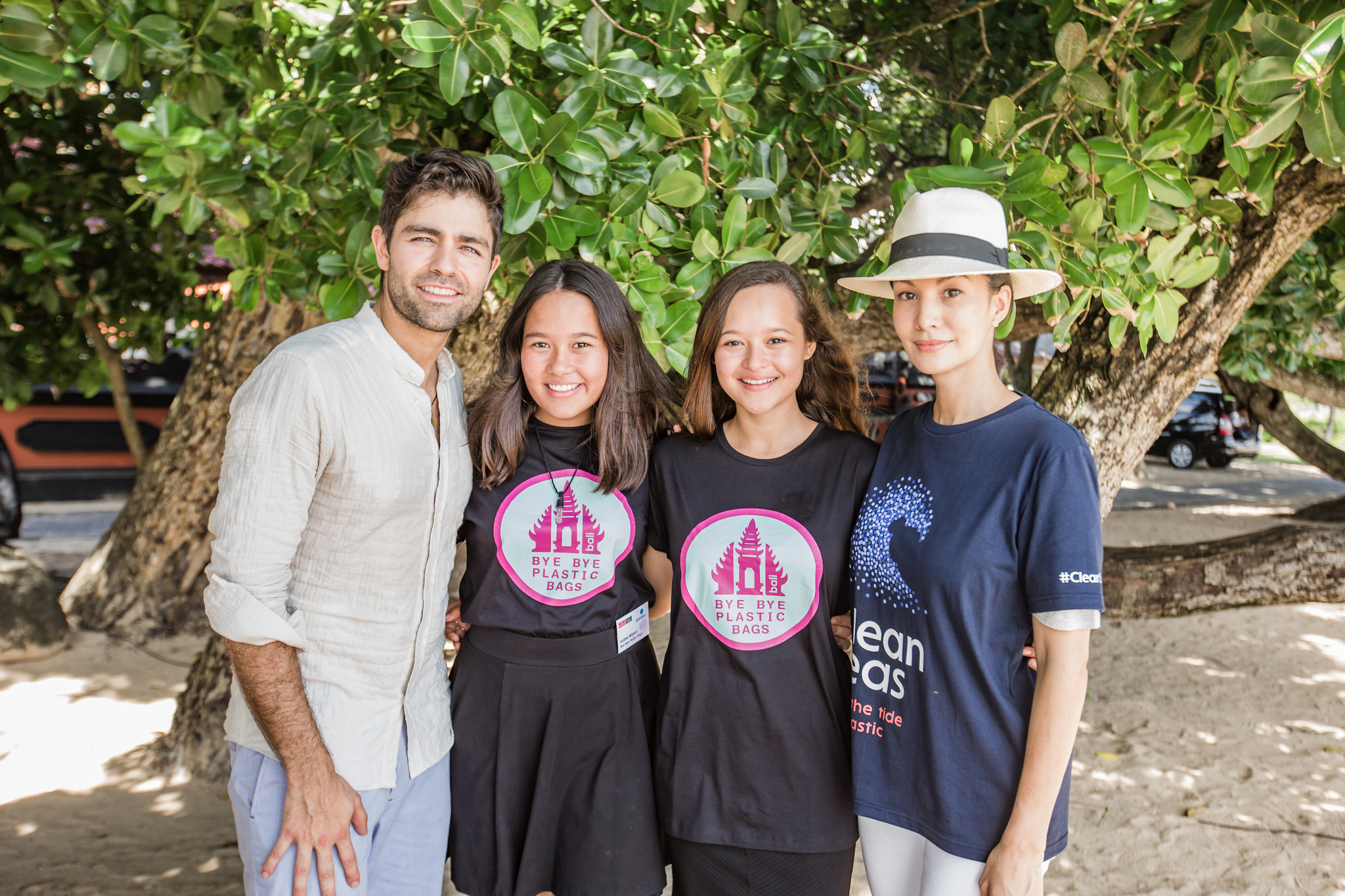
At the Economist World Ocean Summit in Bali, UN Environment launched a global campaign #CleanSeas to eliminate plastic waste in the oceans.
According to recent estimates, more than 8 million tones of plastic waste ends up in the oceans each year. This marine litter includes plastic cups, plates, cutlery, which are usually dumped after single use, and microplastics found in many cosmetics and personal care products as well as product packaging. Over 600 marine species are affected by ingestion and entanglement from marine litter. 15% of these species are already seriously at risk of extinction.
President of the UN General Assembly Peter Thomson said, "The Ocean is the lifeblood of our planet, yet we are poisoning it with millions of tonnes of plastic every year. The time has come to turn the tide on marine litter.”
Up to 80% of all litter in our oceans is made of plastic
With its #CleanSeas campaign, UN aims to eliminate major sources of marine litter by “urging governments to pass plastic reduction policies, encouraging businesses to minimize plastic packaging and redesign products, calling on consumers to change their throwaway habits.”
"It is past time that we tackle the plastic problem that blights our oceans. Plastic pollution is surfing onto Indonesian beaches, settling onto the ocean floor at the North Pole, and rising through the food chain onto our dinner tables. We’ve stood by too long as the problem has gotten worse. It must stop," commented Erik Solheim, Head of UN Environment.

Ten countries have already pledged to take measures to reduce plastic waste. For example, Indonesia has committed to cut its marine litter by 70% by 2025.
Costa Rica is going to implement better waste management techniques and focus on education. Edgar Gutiérrez Espeleta, Minister of Environment and Energy of Costa Rica, said: "Costa Rica recognizes the risks and damage caused by the effects of single-use plastic and non-recoverable micro plastics on the marine environment. We strongly favour the engagement of all relevant stakeholders, including civil society, private sector and all citizens to support national and global efforts. Only through a real and active engagement of all of us, with the help of dynamic partnerships, we will be able to effectively combat marine litter."
Uruguay plans to tax single-use plastic bags later this year. "Our goal is to discourage the use of plastic bags through regulations, give an alternative for workers in the waste sector, and develop education plans regarding the impact of the use of plastic bags on our environment. These actions are key to achieving sustainable development. Uruguay is committed to moving forward in that direction, and the Clean Seas campaign is certainly a very valuable contribution," said Eneida de León, Minister of Housing, Territorial Planning and Environment of Uruguay.
Minister of Climate and the Environment of Norway Vidar Helgesen emphasized that "keeping our seas clean and our marine life safe from plastic is a matter of urgency for Norway.” Vidar Helgesen also added, “Marine plastic litter is a rapidly increasing threat to marine life, seafood safety and negatively affects the lives of people in coastal areas all around the world. We encourage every country in the world to join the Clean Seas campaign and develop effective measures to avoid single-use plastic ending up in the environment. Our oceans cannot wait any longer."
Among other countries that participate in the campaign are: Belgium, France, Grenada, Panama, Saint Lucia, Sierra Leone.

Such global brands as Dell also joined #CleanSeas. Recently, Dell unveiled its plans to use recycled ocean plastic in its product packaging. Dell's Vice President for Global Operations Piyush Bhargava said, “DELL is committed to putting technology and expertise to work for a plastic-free ocean. Our new supply chain brings us one step closer to UN Environment's vision of Clean Seas by proving that recycled ocean plastic can be commercially re used."
Famous media personality Nadya Hutagalung supported the campaign by calling on consumers to make careful choices when it comes to buying cosmetics and personal care products. “On bathroom shelves around the world sit products that are destroying life in our oceans. Tiny pieces of plastic in our face scrubs and toothpastes, used to make products feel smooth, are washed away in drains to then fill the stomachs of marine animals that confuse it for food. No beauty product is worth destroying the world’s beautiful oceans, not to mention our own human well-being. There are alternatives! So let's choose what we buy carefully and together, with the combined power of our voice and our wallets, we can urge beauty companies to end their use of microbeads," commented Nadya.

Actor Adrian Grenier and founder of Lonely Whale Foundation also emphasizes the importance of re-thinking our daily choices, "Whether we choose to use plastic bags at the grocery store or sip through a plastic straw, our seemingly small daily decisions to use plastics are having a dramatic effect on our oceans. We have the power to effect change.”
UN Environment Goodwill Ambassador and singer-songwriter Jack Johnson added, "We can all start today by making personal commitments to reduce plastic waste by carrying reusable shoppings bags and water bottles, saying no to straws and choosing products without microbeads and plastic packaging. We can also support the efforts of the emerging youth leaders around the world working for healthy and plastic free oceans." Jack Johnson is currently promoting his new documentary The Smog of the Sea. This movie also highlights the issue of microplastics waste in the oceans.
During 2017, the campaign will be presenting ambitious targets and goals set by countries and businesses, which are designed specifically to clean up plastic litter from the oceans.
For more details about campaign, click here.
By Natalie Myhalnytska
You may also like
Dell Debuts Product Packaging Made From Recycled Ocean Plastics
H&M’s New Conscious Collection is Made From Recycled Shoreline Plastic
Volcom Releases Women’s Swimwear Made From Recycled Fishing Nets
adidas Unveils Running Shoes Made From Upcycled Marine Plastic Waste
